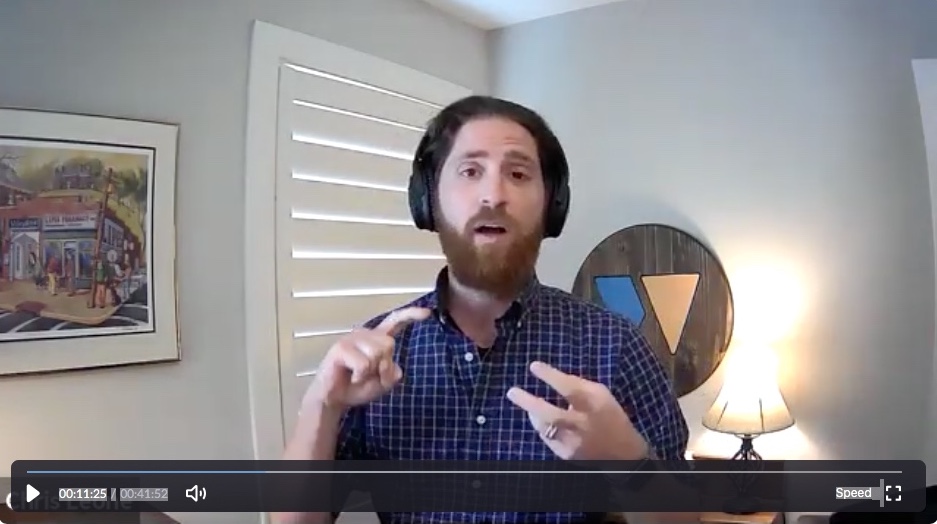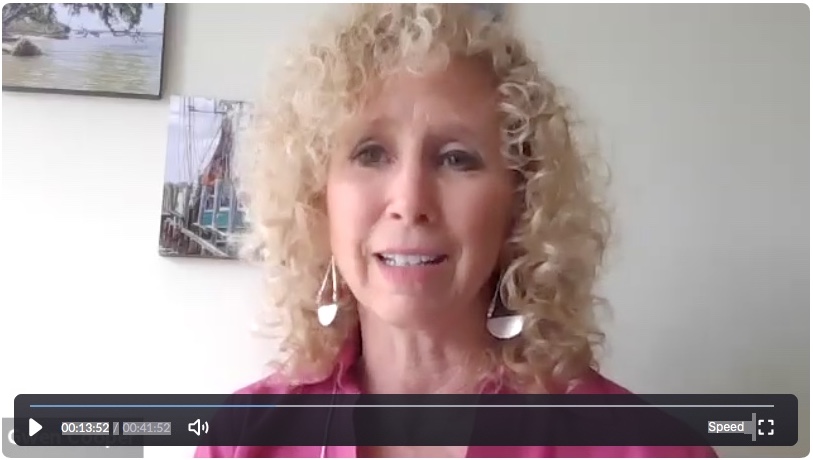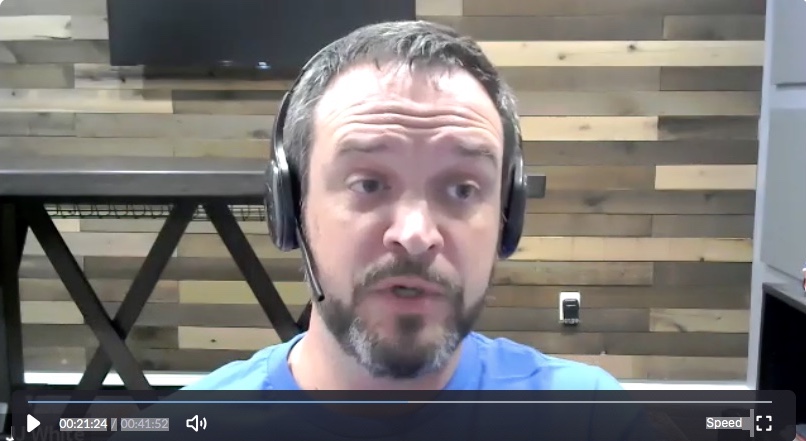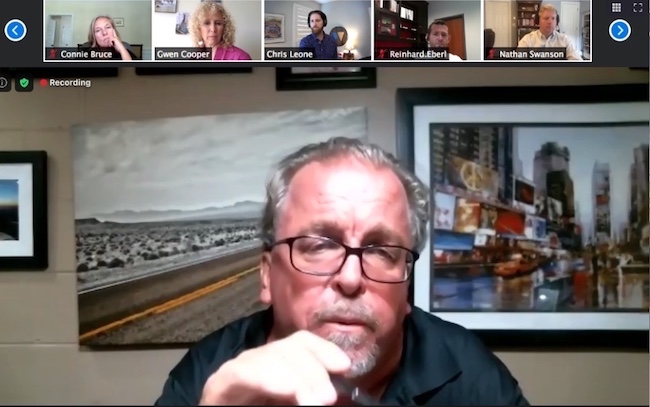COVID-19 Response: Panel of CEOs Explain What’s Changed for Good
 Mark Smith, Owner, Midas of Richmond
Mark Smith, Owner, Midas of Richmond
“It could’ve been very easy to say, ‘Hunker down, cover yourself, and let’s survive this,’” says Mark Smith of Midas of Richmond when asked about his business mindset at the beginning of the COVID-19 crisis. “I just chose to take the opposite route.”
“I just went in as upbeat. It’s a positive. ‘Yeah, this is not ideal, but there are going to be things that are going to capture market share. It’s an unfortunate way to look at this, but there are going to be people who survive this and there are going to be some who won’t. We’re going to turn it up even harder.’”
So Mark Smith bet big.
“We’ve always gone in kind of expecting success. Well, now we expect success just a little bit more.” – Mark Smith, Midas of Richmond
Smith ramped up his monthly marketing budget by more than 35%, added another TV station to his broadcast media strategy, doubled his radio spots, and hired Red Orange Studios, a Richmond, VA ad agency, to build a robust “More to Your Door” campaign – one he intends to invest in significantly.
“So the big thing that changed for me was my mindset,” Smith explains. “We’ve always gone in kind of expecting success. Well, now we expect success just a little bit more. We’re going to go full out. We’re going to capture market share. We’re going to hire folks. We’re going to grab what we can. We’re going to do it proactively, we’re going to do it aggressively, and we’re going to do it unapologetically.”
WHAT’S CHANGED FOR GOOD
A new “Go Big” mindset

Chris Leone, CEO, WebStrategies
How was Chris Leone of WebStrategies feeling in the early stages of COVID-19? “I think maybe some of us kind of knew that this was not going to be a short-term thing,” he says. One of his biggest concerns for his digital marketing firm was figuring out how to approach customers when selling their services.
“It went from, ‘Um, yeah, sure – I’ll meet with you’ or ‘Now’s not a great time,’ to ‘How dare you try to call me right now?’ I mean, if you’re in sales or know people in sales, the responses we were getting were just vicious. The whole sales community is wondering, ‘How the heck do we behave right now through all of this?’”
Leone chose to focus on what he could control.
“We decided to create as much value as possible for our marketplace in the form of content and be as loud as we possibly could.” – Chris Leone, WebStrategies
“I can’t control what people are willing to give to me – their time, a meeting, a signed contract – but I can 100% control what I’m willing to give to them. So with that, our sales and marketing strategies shifted. We decided to create as much value as possible for our marketplace in the form of content and be as loud as we possibly could.”
Leone hired an additional marketing person, invested more in the content of his webinars, and tripled the amount of content on his website. Instead of asking for meetings, his salespeople offered free content – and the company has seen its first-meetings rate increase by 117% compared to last year.
What changed for good? Leone has learned to ask himself, “When the behavior of the marketplace changes quickly and dramatically, how can we adapt? So we remain focused on the things we can control instead of wishing for things to go back to how they were. We’re driving home the importance of being seen as a trusted authority in our space. [The pandemic] forced us to find new ways to do that, and we’re going to be able to carry that forward into the future.”
WHAT’S CHANGED FOR GOOD
Adaptability and focus on the controllable

Gwen Cooper, CEO, Patient Services, Inc.
Gwen Cooper, CEO, Patient Services, Inc. (PSI), was hired as the company’s new CEO on June 1, smack in the middle of the pandemic. To say she’s had a challenging first few months on the job is an understatement.
“We are the oldest patient assistance program in the country headquartered in Virginia. Our nurses, doctors, outreach managers and government affairs teams were working around the clock to make sure all our patients had every opportunity to get the care they needed…in their homes.”
In her new role it was imperative that she quickly understood the “before COVID” work habits versus the “current state” work habit to determine how well it was working for her new team of 50. “[Moving staff remotely] gave us an opportunity to really look at our staffing needs, contracts and benefits to help us understand where we could streamline our expenses. Especially when it became clear we weren’t coming back anytime soon.“
“We’re not coming back to the office. We’re going to have a permanent flexible work schedule and work out what our remote working looks like.” – Gwen Cooper, Patient Services, Inc.
The great news is that productivity has actually increased, Cooper reports.
“What’s changing for us at PSI is that we’re not coming back to the office. We’re going to have a permanent flexible work schedule and work out what out remote working looks like,” she says. Making that work now includes keeping an eye on staff members’ “emotional bank accounts” since she knows they’re missing day-to-day interactions with each other.
WHAT’S CHANGED FOR GOOD
Operational efficiencies and a shift to a remote work model

JJ White, CEO/Franchise Owner, Dale Carnegie
JJ White, Dale Carnegie CEO/Franchise Owner, is arguably the most affected by COVID-19 of our panel. “I’ve been a multi-unit franchise owner for Dale Carnegie Training for 20 years,” White explains. “Ninety-nine percent of what we’ve always done is bringing groups together in a room for transformational learning programs, bringing permanent behavior changes and soft skills, leadership, communication – things of that nature. When we started our week on March 16th, 99% of what we do ended.”
One percent of White’s business was not affected because Dale Carnegie was, at the time, one of the largest companies in the world delivering virtual instructor-led training. “So immediately, in one day, 1% of my business became 100% percent, but the sales weren’t there to compensate.”
In July, White – and the 108-year-old institution of Dale Carnegie – had to come to grips with the fact that it was time to completely reinvent how they went to market. Everything was evaluated, and nothing was so sacred that it couldn’t be changed.
“We took our core strengths and applied them in completely different ways,” says White. “We started to shift our entire operational model to a completely different deliverable. We helped existing clients acclimate to our new offer, and we found new clients and markets. The biggest change we made was to tear down the geographical boundaries of my regional sales team.”
“The biggest thing this crisis did for us was it solved so many constraints that we had in our business for years.” – JJ White, CEO/Franchise Owner, Dale Carnegie.
In a weird twist of fate, the pandemic could be seen as one of the best things that’s ever happened to his business. “The biggest thing that this crisis did for us was it solved so many constraints that we had in our business for years, especially being a global franchise network. We didn’t need a certain mass in a certain geographical area anymore. Everything is virtual and dispersed. It’s really enabled us to tear down walls that we should have torn down years ago, but didn’t have the courage to.”
White reports that sales are up, and he has confidence that his business will be OK.
CHANGED FOR GOOD
No more artificial boundaries or constraints
How has your business changed for good? Please share with us by leaving a comment.
Virginia Council of CEOs is a nonprofit dedicated to bringing CEOs of small and mid-sized businesses together to share experiences and to learn and grow with each other through peer roundtable groups and learning events. Learn more.

 Mark Smith, Owner, Midas of Richmond
Mark Smith, Owner, Midas of Richmond
Leave a Reply